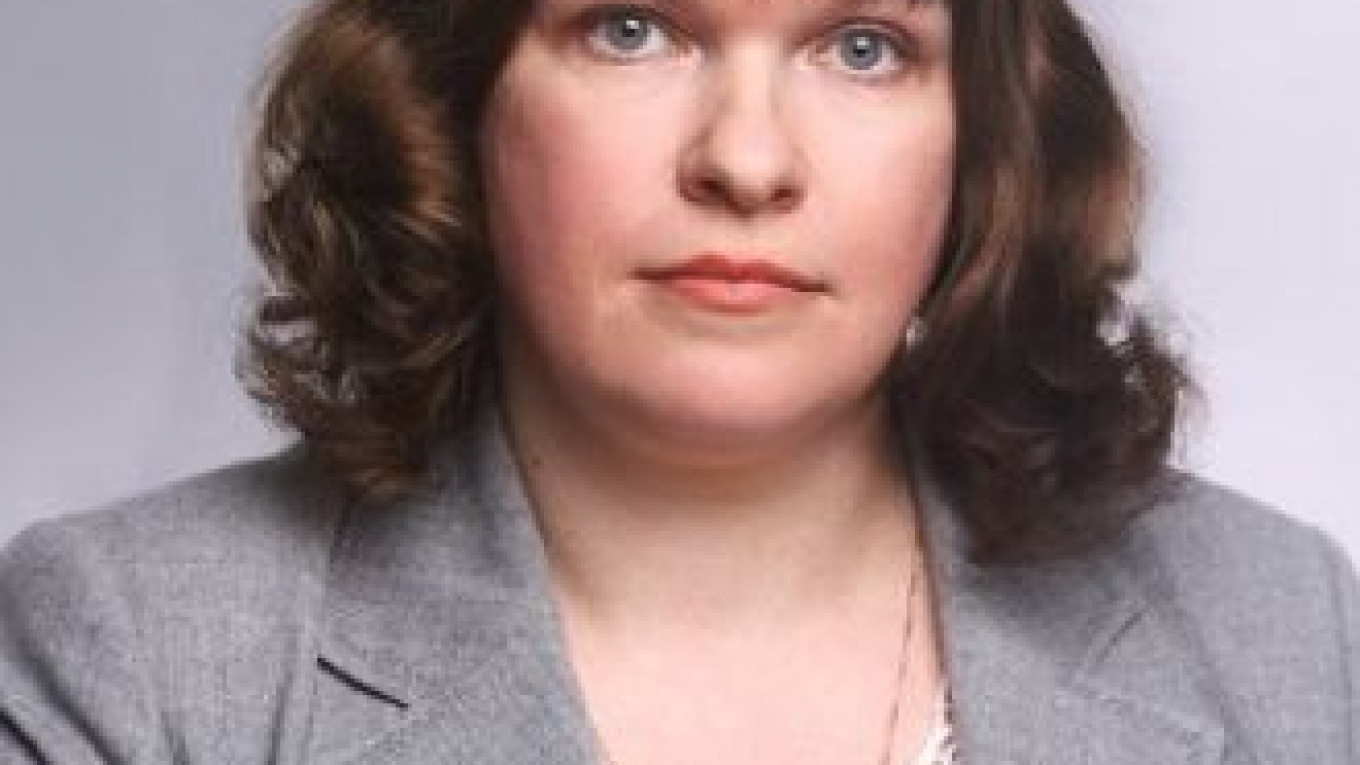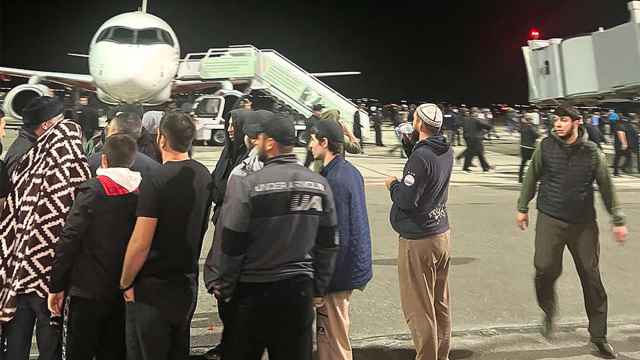A weaver from the Ivanovo region who shot to fame in 2007 for demanding that the Constitution be amended to allow Vladimir Putin to serve a third term as president has been handed a United Russia seat in the State Duma.
The weaver, Yelena Lapshina, 39, will fill a seat vacated by Sergei Kapkov, who accepted a Moscow City Hall offer to run Gorky Park earlier this month.
Lapshina joined United Russia just a month ahead of the October 2007 party conference where she called for Putin to stay in the Kremlin. In March 2008, the same month Dmitry Medvedev was elected president, she was elected a United Russia lawmaker in the Ivanovo regional legislature.
With only a high school education, she enrolled in 2008 in the Ivanovo State Textile Academy's department of economics and personnel management.
State Duma Speaker and senior United Russia official Boris Gryzlov said Monday that it is "important" for the party that "people with different backgrounds" who "know well the problems of their social groups" come to power, according to United Russia's web site.
The image of a "low-class Russian woman" who rises to fame was common in Soviet propaganda, Andrei Kolesnikov, a columnist for opposition newspaper Novaya Gazeta, said in an article posted on Gazeta.ru on Tuesday.
Lapshina's picture on the Ivanovo regional legislature's web site depicts a broad-shouldered woman in a gray suit made of coarse fabric. She is wearing a delicate crucifix on a chain around her neck.
Lapshina also headed Prime Minister Vladimir Putin's public reception office in Ivanovo, where she has shown herself as a "sympathetic, hard-working" person who shows "initiative," United Russia said.
Lapshina said she would aim to "improve the lawmaking process, fulfill voters' instructions and work with the population," the web site reported Tuesday.
A Message from The Moscow Times:
Dear readers,
We are facing unprecedented challenges. Russia's Prosecutor General's Office has designated The Moscow Times as an "undesirable" organization, criminalizing our work and putting our staff at risk of prosecution. This follows our earlier unjust labeling as a "foreign agent."
These actions are direct attempts to silence independent journalism in Russia. The authorities claim our work "discredits the decisions of the Russian leadership." We see things differently: we strive to provide accurate, unbiased reporting on Russia.
We, the journalists of The Moscow Times, refuse to be silenced. But to continue our work, we need your help.
Your support, no matter how small, makes a world of difference. If you can, please support us monthly starting from just $2. It's quick to set up, and every contribution makes a significant impact.
By supporting The Moscow Times, you're defending open, independent journalism in the face of repression. Thank you for standing with us.
Remind me later.






